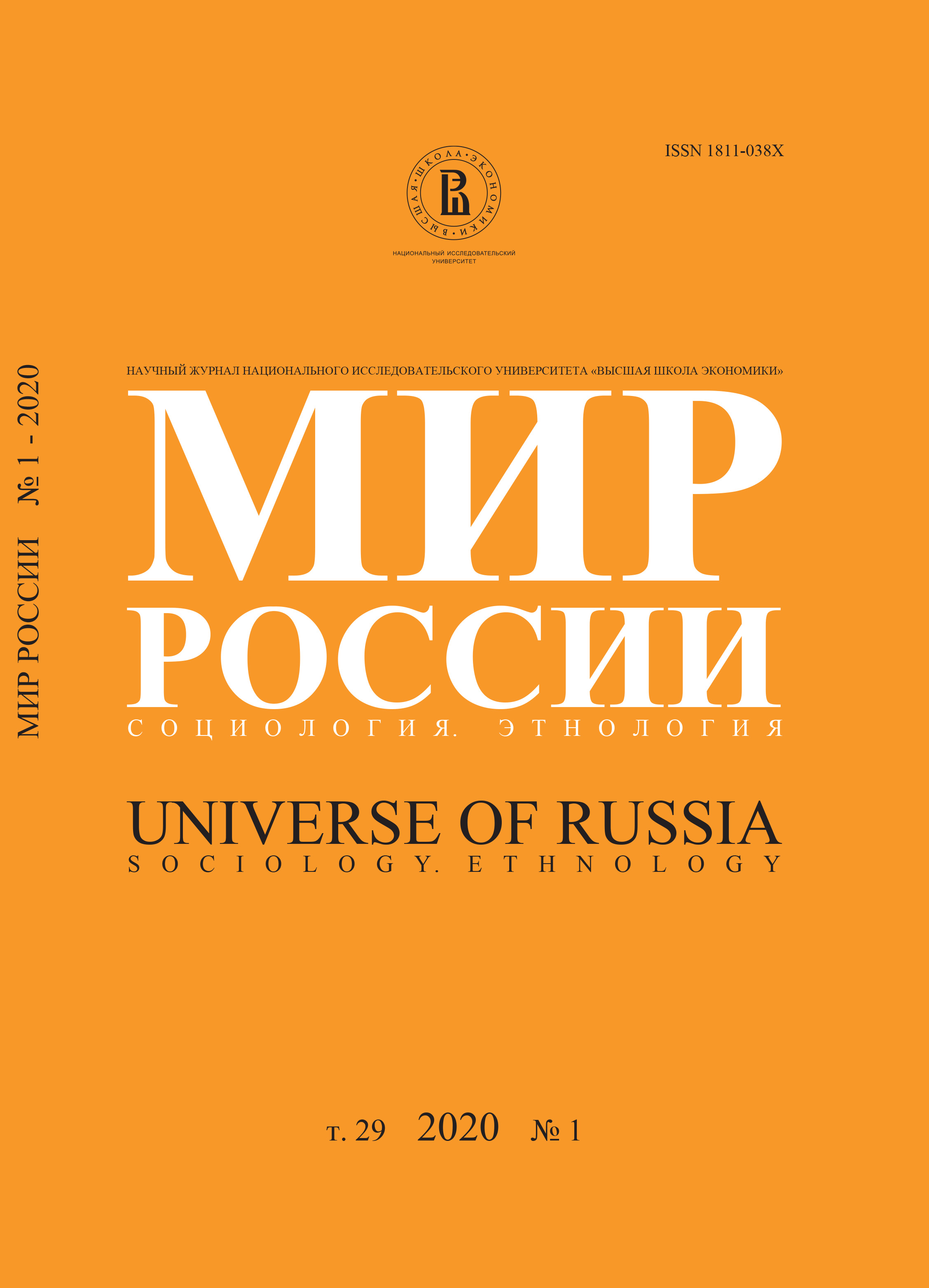'The Great Names of Russia” in Russian Republics: Ethnic Discourse on Identity Politics'
Abstract
Citation: Nazukina M. (2020) “The Great Names of Russia” in Russian Republics: Ethnic Discourse on Identity Politics. Mir Rossii, vol. 29, no 1, pp. 132–152 (in Russian). DOI: 10.17323/1811-038X-2020-29-1-132-152
The author analyzes the actualization of ethnic discourse during the contest “Great names of Russia”, in six Russian republics. This contest is considered a tool of identity politics for the selection of a key cultural hero of the regions to represent their uniqueness and identity. The materials for the analysis were the monitoring of media and blogs through the system “Medialogy”, the web pages of the cities participating in the contest on the official website of the project (short- and longlists, and articles about the nominees), materials and comments in social networks, forums, and expert analysis. The actualization of ethnic discourse at the level of content analysis was associated with the identification of materials containing ethnonyms of the titular ethnic groups of the republics. The analysis of discourse from the perspective of ethnicity revealed several models: 1) the low degree of significance of the mainstreaming of ethnicity (Cheboksary, Syktyvkar); 2) the average degree of importance of the mainstreaming of ethnicity (Kazan, Yakutsk, Nizhnekamsk); 3) high degree of significance of the mainstreaming of ethnicity (Gorno-Altaisk, Ufa). The following indicators were used: the presence or victory of candidates from the titular ethnic group (the importance of ethnicity in the presentation of the hero); the presence of ethnic discourse in public policy (the participation of ethnic organizations and politicians in the promotion of candidates); conflict in the course of the contest or its results because the winning or losing candidates had the titular ethnicity. A pattern was revealed predicting the success of those heroes who represent the title group and defended their preferential right to symbolic politics in the Republic. It is shown that strengthening the dichotomy of “our” vs “other” and its politicization in the discourse invoking ethnicity strengthen the conflictual nature of ethnic discourse.






